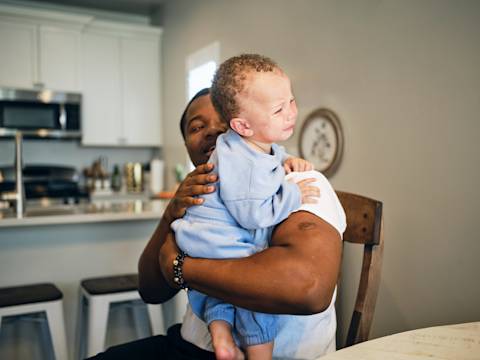Is there more than one language spoken in your home? Does your child hear one language from you and another from his grandparents? The more languages, the better! The first three years of a child's life are the most critical for speech and language development because the brain is best able to absorb language during this period.

The Benefits of Multiple Languages
One of the easiest ways you can help your child get ahead in life is by introducing more than one language. It’s not confusing to babies and young children – in fact, hearing different languages helps boost their brain development!
Young brains are primed and wired to pick up languages, especially during their earliest years. In fact, research shows that children are born with the ability to identify sounds from every language they hear. Now is a great time to talk, read, and sing with your child in multiple languages.
Don’t be afraid to expose your baby to more than one language – encourage it! Dual-language learners tend to demonstrate greater working memory, reasoning, flexibility, and problem solving. So encourage the grandparents speak in their native languages or take your child to a bilingual story time at the library – the more they hear, the better. Beyond learning more than one language, exposing your child to other cultures, especially your family’s cultural roots, will enhance your child’s life and be a benefit later in life.
Not sure if introducing a second language is right for your family? Here are two scenarios that might sound familiar to you:
“I’m not fluent in my second language. I’m worried that I won’t pronounce words correctly when teaching my child.” The truth is, the language parents speak to their children doesn’t always have to be perfect or grammatically correct. The most important thing is to introduce your child to it.
“I don’t want to confuse my child with multiple languages and slow down vocabulary development.”
Studies show that children are born with the ability to identify sounds from every language, and as they grow, their skills narrow to focus on the language(s) they hear most often. Learning more than one language at the same time is not confusing to young children. Rather, it helps them develop multiple, but inter-related, language systems. It also increases their brain function. Switching between languages gives them an increased ability to monitor their environment more efficiently. Knowing more than one language also can expand their career opportunities and can even keep them mentally sharp in their later years!

Read books in different languages.
Listen to music in multiple languages. Catchy songs played over and over again help a child learn and understand words.
Point and describe the world around you in multiple languages. For example, a cat can be a cat, gato, or chat. The more ways to say something, the more fun!
For more information on learning two or more languages, check out ASHA’s website.







